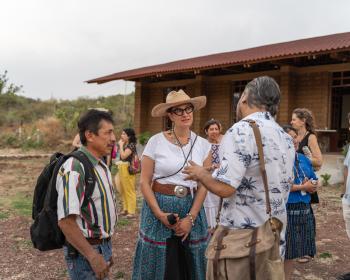The U.S. Supreme Court on Tuesday declined to hear a case involving the right of the Kaltag Nation of Alaska to have its tribal court decide cases involving children. The case in question involved a Kaltag child who was being abused and neglected by her parents. After hearing the facts, the Tribal Court ordered the child to be removed from her parents and gave permanent custody of the girl to another tribal family. When that family formally adopted the child and applied for a new birth certificate for the girl's new name, the state of Alaska refused, contending that the tribe’s court did not have the authority to make this sort of decision. The Native American Rights Fund, on behalf of the tribal council, sued the state, claiming that the Indian Child Welfare Act guaranteed tribal court rights in this area.
The case was heard by the U.S. District Court for Alaska, which ruled in favor of the tribe, and the state responded by appealing the decision to the Supreme Court. In declining to hear the case this week, the high court effectively endorsed the district court’s ruling and the tribe’s rights. Although the particulars of the case the specific ruling are fairly narrow, the decision has wide application, formally recognizing the authority of tribal judicial systems across the country. The Obama administration submitted an amicus brief in the case, supporting the tribe, and specifically underscored tribes' right to self-determination and self-government. Click here for more information.


